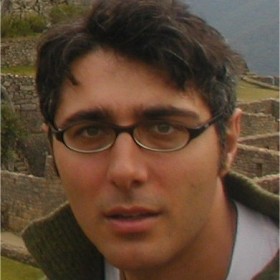
3:30 pm to 12:00 am
Event Location: NSH 1305
Bio: Fernando De la Torre received his B.Sc. degree in Telecommunications (1994), M.Sc. (1996), and Ph. D. (2002) degrees in Electronic Engineering from La Salle School of Engineering in Ramon Llull University, Barcelona, Spain. In 1997 and 2000 he was an Assistant and Associate Professor in the Department of Communications and Signal Theory in Enginyeria La Salle. Since 2005 he has been a Research Assistant Professor in the Robotics Institute at Carnegie Mellon University. Dr. De la Torre’s research interests include computer vision and machine learning, in particular face analysis, optimization and component analysis methods, and its applications to human sensing. Dr. De la Torre co-organized the first workshop on component analysis methods for modeling, classification and clustering problems in computer vision in conjunction with CVPR’07, and the workshop on human sensing from video jointly with CVPR’06. He has also given several tutorials at international conferences (ECCV’06, CVPR’06, ICME’07, ICPR’08) on the use and extensions of component analysis methods. Currently he leads the Component Analysis Laboratory (http://ca.cs.cmu.edu) and co-leads the Human Sensing Laboratory (http://humansensing.cs.cmu.edu).
Abstract: Enabling computers to understand human behavior has the potential to revolutionize many areas that benefit society such as clinical diagnosis, human computer interaction, and social robotics. A critical element in the design of any behavioral sensing system is to find a good representation of the data for encoding, segmenting, classifying and predicting subtle human behavior. In this talk I will propose several extensions of Component Analysis (CA) techniques (e.g. kernel principal component analysis, support vector machines, and spectral clustering) that are able to learn meaningful spatio-temporal representations useful in many human sensing tasks.
In the first part of the talk, I will give an overview of several ongoing projects in the CMU Human Sensing Laboratory. In the second part of the talk, I will show how several extensions of the CA methods outperform state-of-the-art algorithms in human sensing problems such as temporal alignment of human actions, unsupervised discovery of facial events, temporal classification of facial behavior, joint segmentation and classification of human behavior, and facial feature detection in images. The talk will be adaptive, and I will discuss the topics of major interest
to the audience.
